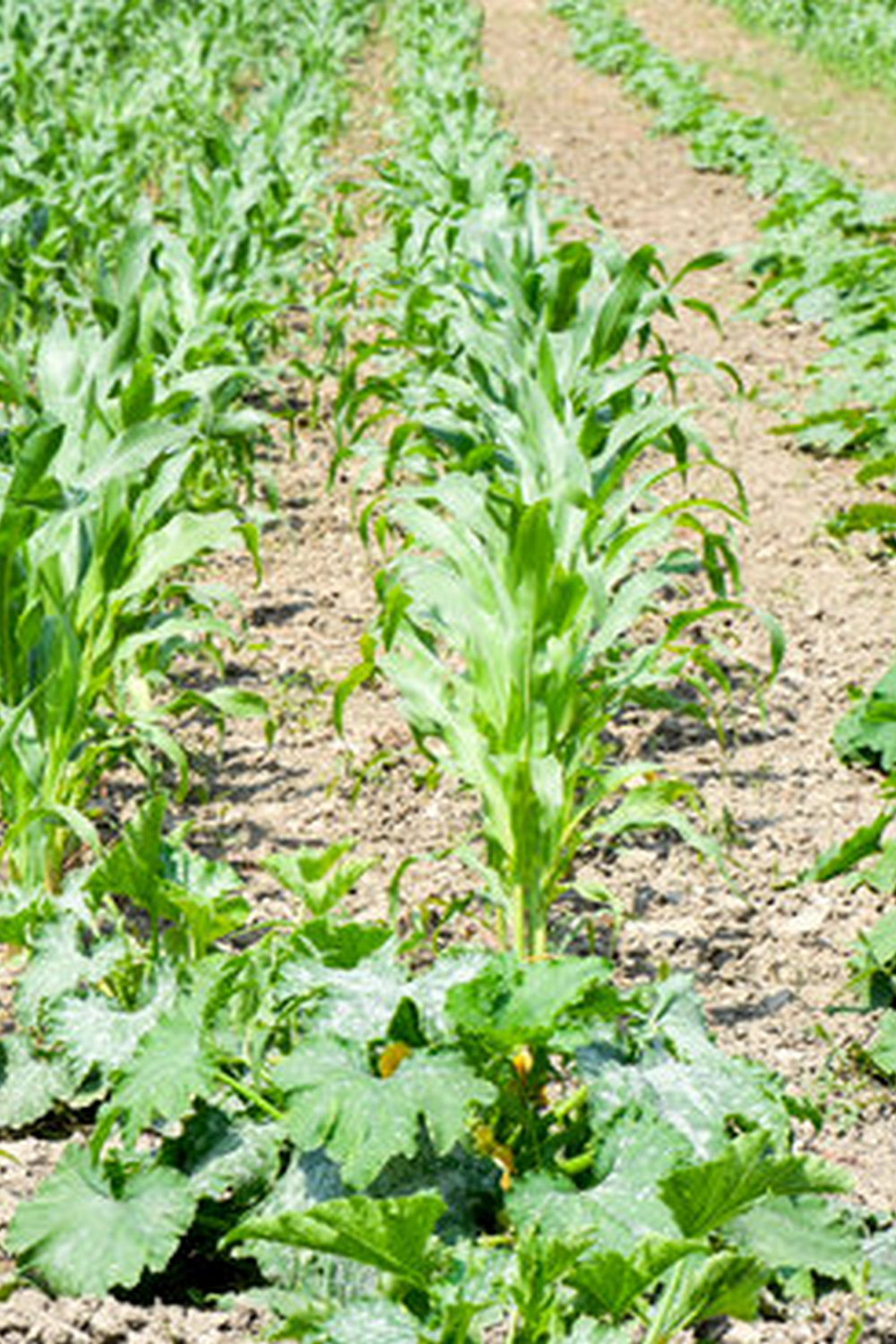Are you tired of dealing with pesky ants in your vegetable garden? Finding a natural ant repellent for vegetable gardens is crucial to maintaining a healthy and thriving crop. Ants can cause damage to your plants and soil, and using chemical repellents may have harmful effects on your vegetables. In this article, we will explore the issue of ants in vegetable gardens and the benefits of using natural ant repellents to keep them at bay.
Ants in vegetable gardens can pose a serious threat to the health of your plants. Not only do they disrupt the soil by building their nests, but they also protect and farm pests such as aphids, which can damage your crops. Chemical ant repellents may seem like a quick fix, but they can have detrimental effects on the environment and your vegetables. It’s important to find natural alternatives that are safe for both your garden and the ecosystem.
Using natural ant repellents in vegetable gardens has numerous benefits. Not only are they safer for the environment and your plants, but they are also cost-effective and easy to make at home. In this article, we will discuss DIY natural ant repellent options for vegetable gardens, including essential oils and plants that naturally repel ants. Say goodbye to harmful chemicals and hello to a thriving, healthy vegetable garden.
The Harmful Effects of Chemical Ant Repellents on Vegetable Gardens
Chemical ant repellents have long been used to keep ants away from vegetable gardens, but these harsh chemicals can have detrimental effects on the environment and the health of your plants. When chemical ant repellents are sprayed in vegetable gardens, they can contaminate the soil and water, causing harm to beneficial insects and other wildlife. Additionally, these chemicals can also be absorbed by the vegetables themselves, posing a risk to anyone who consumes them.
The use of chemical ant repellents in vegetable gardens also disrupts the natural balance of the ecosystem, killing off beneficial insects and microorganisms that contribute to a healthy garden. This disruption can lead to an increase in pests and diseases, ultimately causing more harm than good in the long term.
Instead of relying on chemical ant repellents that pose risks to both your garden and the environment, consider using natural alternatives that are just as effective at keeping ants at bay. By choosing natural ant repellents for your vegetable garden, you can protect the health of your plants and help maintain a balanced ecosystem.
Some options for natural ant repellents for vegetable gardens include:
- Sprinkling cinnamon or chili powder around the perimeter of your garden
- Using a mixture of water and dish soap to create a barrier around your plants
- Planting insect-repelling herbs such as mint, lavender, or basil near your vegetables
By opting for natural ant repellents in your vegetable garden, you can effectively control ants without harming the environment or compromising the health of your plants. These natural methods offer a safe and sustainable approach to managing pests in your garden.
The Benefits of Using Natural Ant Repellents in Vegetable Gardens
Using natural ant repellents in vegetable gardens has numerous benefits for both the garden and the environment. Unlike chemical ant repellents, natural options are not harmful to the plants, soil, or beneficial insects in the garden. Additionally, natural repellents do not pose any health risks to humans or pets that may come into contact with them. Here are some of the key benefits of using natural ant repellents in your vegetable garden:
1. Environmentally Friendly: Natural ant repellents do not contain any harsh chemicals that can harm the environment. By using natural options, you are reducing the amount of synthetic chemicals being introduced into the ecosystem.
2. Safe for Plants: Many chemical ant repellents can be harmful to the vegetable plants in your garden. Natural repellents, on the other hand, do not cause any damage to the plants and allow them to thrive without any negative side effects.
3. Non-Toxic: Natural ant repellents are non-toxic and safe to use around children and pets. This provides peace of mind knowing that your garden is protected from ants without exposing your loved ones to harmful substances.
Incorporating natural ant repellents into your vegetable garden maintenance routine is a great way to keep pests at bay while promoting a healthy and sustainable environment for your plants to flourish.
DIY Natural Ant Repellent Options for Vegetable Gardens
Ants can be a nuisance in vegetable gardens, but using chemical ant repellents can have harmful effects on the plants and the environment. Fortunately, there are several natural ant repellent options that are safe and effective for keeping ants away from your vegetable garden.
One of the most popular DIY natural ant repellent options is using a mixture of equal parts water and white vinegar. This solution can be sprayed directly onto the ants or around the perimeter of the garden to deter them from entering. Another option is to sprinkle cinnamon or cayenne pepper around the garden, as ants are known to avoid these strong-smelling substances.
Additionally, diatomaceous earth is a natural and non-toxic ant repellent that is safe to use in vegetable gardens. This powdery substance works by dehydrating the ants and disrupting their pheromone trails, ultimately deterring them from returning to the area. These DIY natural ant repellent options are not only effective but also do not pose any risks to your vegetable garden or the surrounding environment.
When it comes to finding natural solutions for pest control in vegetable gardens, it’s important to consider the impact on both plant health and environmental sustainability. By utilizing DIY natural ant repellents, you can effectively manage ant infestations without compromising the well-being of your vegetable plants or introducing harmful chemicals into your garden ecosystem.
| Natural Ant Repellent Options | Pros | Cons |
|---|---|---|
| Vinegar and Water Mixture | Safe, readily available | Needs reapplication after rain |
| Cinnamon or Cayenne Pepper | Safe, organic | May need frequent reapplication |
| Diatomaceous Earth | Non-toxic, long-lasting effect | Can be abrasive if inhaled |
Plants That Naturally Repel Ants in Vegetable Gardens
When it comes to keeping ants at bay in your vegetable garden, turning to nature for help can be a great solution. There are several plants that naturally repel ants and can be easily incorporated into your garden design to help ward off these pesky pests.
Mint
Mint is not only a great addition to your recipes but also a natural ant repellent. The strong scent of mint acts as a deterrent for ants and can help keep them away from your vegetable garden. Planting mint around the perimeter of your garden or between rows of vegetables can create a natural barrier that ants will think twice about crossing.
Lavender
Lavender is well-known for its pleasant aroma, but it also serves as a reliable ant repellent. The strong fragrance of lavender is highly effective in warding off ants and other insects. By incorporating lavender plants into your vegetable garden, you can help discourage ants from making themselves at home among your crops.
Chrysanthemums
Chrysanthemums not only add vibrant colors to your garden but also contain pyrethrum, which is a natural insecticide. This makes them an excellent choice for naturally repelling ants and other unwanted pests from infiltrating your vegetable garden.
By strategically planting these and other ant-repelling plants throughout your vegetable garden, you can create a natural defense system against ant invasions, without having to resort to harmful chemical repellents.
How to Use Essential Oils as Natural Ant Repellents in Vegetable Gardens
Essential oils have been used for centuries as natural remedies for a variety of ailments, and they can also be effective in repelling ants from vegetable gardens. These oils are derived from plants and carry the plant’s natural defense mechanisms against pests, making them an ideal option for those looking to keep their garden free from ants without the use of harmful chemicals.
Choosing the Right Essential Oils
When using essential oils as ant repellents in vegetable gardens, it is important to choose the right kind of oil. Some of the most effective options include peppermint, tea tree, lemon eucalyptus, and lavender oils. These oils have strong scents that ants find offensive, and when used properly, they can effectively deter ants from invading the garden.
Application Methods
There are several ways to use essential oils in vegetable gardens to repel ants. One popular method is to dilute a few drops of the chosen essential oil with water in a spray bottle and then mist it over the affected areas. Another option is to soak cotton balls in the oil and place them strategically around the garden to create a barrier that ants will avoid.
Considerations and Precautions
While essential oils are generally safe for use in vegetable gardens, it is important to exercise caution when applying them. Some plants may be sensitive to certain types of essential oils, so it is best to test a small area before widespread application. Additionally, some essential oils can be harmful to pets or beneficial insects, so it is crucial to research each oil’s potential effects before use.
By using essential oils as natural ant repellents in vegetable gardens, gardeners can effectively manage ant infestations while maintaining a safe and healthy environment for their plants.
Other Natural Methods for Keeping Ants Away From Vegetable Gardens
Ants are a common pest in vegetable gardens, and finding natural ways to keep them away is essential for maintaining a healthy and thriving garden. In addition to using plants and essential oils as natural ant repellents, there are other effective methods for keeping ants away from vegetable gardens.
One of the simplest natural methods for keeping ants away from vegetable gardens is to create physical barriers using natural materials. For example, placing a border of diatomaceous earth or crushed eggshells around the perimeter of the garden can deter ants from crossing into the garden. These abrasive substances irritate the ants’ exoskeletons, causing them to avoid areas where these materials are present.
Another effective method for keeping ants away from vegetable gardens is by disrupting their scent trails. Ants use pheromone trails to communicate with each other and find food sources, so disrupting these trails can help deter them from entering the garden. This can be done by spraying a mixture of equal parts water and white vinegar along ant trails and entry points into the garden.
Additionally, practicing good garden hygiene can also help keep ants at bay. This includes regularly removing any decaying organic matter or food scraps from the garden, as these can attract ants in search of food sources. By keeping the garden clean and free of debris, it becomes less attractive to ants looking for resources.
| Method | Effectiveness |
|---|---|
| Physical barriers (diatomaceous earth, eggshells) | Effective in deterring ants |
| Vinegar spray | Disrupts ant scent trails |
| Garden hygiene | Reduces attractiveness to ants |
Tips for Maintaining a Healthy and Ant-Free Vegetable Garden
When it comes to maintaining a healthy and thriving vegetable garden, keeping ants at bay is essential. Not only can ants cause damage to the plants themselves, but they can also attract other pests that can harm your garden. Using natural ant repellents in your vegetable garden is not only better for the environment, but it also helps ensure that your fruits and vegetables are safe for consumption.
One effective natural ant repellent for vegetable gardens is diatomaceous earth. This powdery substance works by dehydrating ants when they come into contact with it. Simply sprinkle diatomaceous earth around the base of your plants or create a barrier around your garden to deter ants from entering.
Another natural method for keeping ants away from your vegetable garden is using white vinegar. Mix equal parts of white vinegar and water in a spray bottle and apply it to areas where you notice ant activity. The strong scent of the vinegar disrupts their pheromone trails and effectively deters them from returning.
Additionally, making sure that your garden is free from debris and food scraps can help prevent ants from being attracted to the area. Keeping a clean and tidy garden will minimize opportunities for ants to find sources of food, reducing their presence overall.
By implementing these natural ant repellent methods, you can ensure that your vegetable garden remains healthy and free from unwanted pests while also minimizing the need for potentially harmful chemical repellents.
Conclusion
In conclusion, it is clear that the issue of ants in vegetable gardens can be effectively addressed through the use of natural ant repellents. Chemical ant repellents can have harmful effects on both the environment and the vegetables themselves, making them an undesirable option for gardeners. On the other hand, natural ant repellents not only help to keep ants at bay but also contribute to the overall health and success of vegetable gardens.
DIY natural ant repellent options, such as using ingredients like vinegar, citrus peels, or coffee grounds, provide an effective and eco-friendly solution for keeping ants away from vegetable gardens. Additionally, planting specific types of vegetation that naturally repel ants or utilizing essential oils are practical ways to create a natural barrier against these pests. These methods not only serve as natural ant repellents but also help in maintaining a healthy and thriving vegetable garden.
It is important for gardeners to prioritize the use of natural ant repellents in their vegetable gardens to ensure a productive and pest-free growing environment. By incorporating these methods into their gardening practices, individuals can protect their crops without compromising their own health or the well-being of the surrounding ecosystem. Overall, promoting the use of natural ant repellents is crucial for preserving the success and sustainability of vegetable gardens.
Frequently Asked Questions
How Do You Get Rid of Ants in Your Vegetable Garden?
To get rid of ants in your vegetable garden, you can use natural repellents like cinnamon, citrus peels, or peppermint oil. You can also create barriers with diatomaceous earth or dish soap.
What Ant Killer Is Safe for Vegetable Gardens?
When it comes to ant killers that are safe for vegetable gardens, organic products like diatomaceous earth, boric acid baits, or insecticidal soap are good options. Always make sure to follow the instructions carefully.
How Do I Get Rid of Ants in My Raised Garden Bed?
If you need to get rid of ants in your raised garden bed, consider using natural deterrents like coffee grounds, cucumber peels, or vinegar. You can also physically remove ant nests and colonies from the bed.

If you’re looking to get into vegetable gardening, or are just looking for some tips on how to make your current garden better, then you’ve come to the right place! My name is Ethel and I have been gardening for years. In this blog, I’m going to share with you some of my best tips on how to create a successful vegetable garden.





